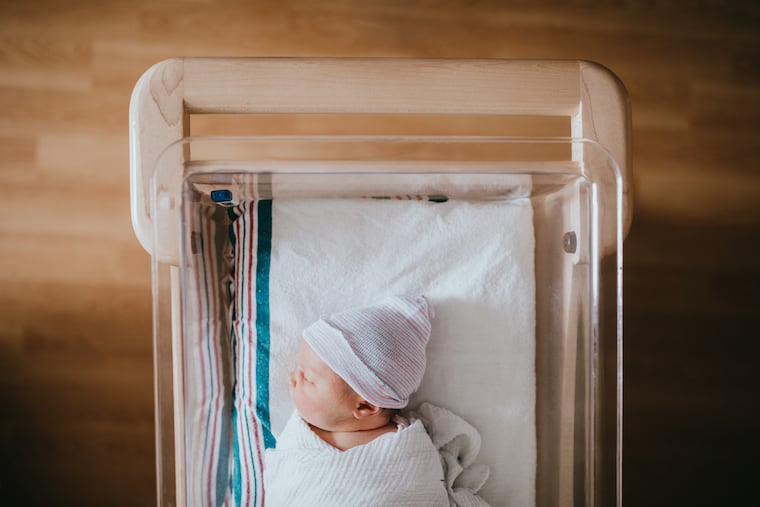A sudden infant death syndrome study is making waves, but parents should approach with caution
Advocates and experts are concerned that the perception that the mystery of SIDS was solved would lead parents to abandon life-saving precautions.

Parents, don’t let your infants sleep on their stomach with a soft blanket just yet.
A new Australian study about sudden infant death syndrome is making waves across the internet. Headlines are claiming that “researchers pinpoint reason infants die from SIDS” and some took to Twitter to declare that “they found the cause of SIDS.”
Unfortunately, that is not what the study shows. Advocates and experts are concerned that the perception that the mystery of SIDS was solved would lead parents to abandon lifesaving precautions.
“I would not want families to stop implementing some of the things that we know protect infants because of this study,” said Karen Pollack, executive vice president of programs and operations at Maternity Care Coalition, a Philadelphia-based nonprofit. “We want to make sure that parents and caregivers of young children are continuing to follow those safe sleep practices, which are a baby sleeping alone, on the back, and in a crib.”
Every year about 3,400 infants unexpectedly die in their sleep nationwide. These deaths are commonly attributed to SIDS, an unknown cause, or accidental suffocation and strangulation in bed.
According to the Pennsylvania Department of Health’s most recent annual report on child deaths, 67 infant deaths in Pennsylvania were categorized as sudden unexpected infant death in 2019. The rate for Black infants was more than double that of white infants. Philadelphia has averaged about 32 sleep-related infant deaths annually in recent years.
In the new study, researchers from Children’s Hospital Westmead in Sydney compared the newborn blood samples of 67 infants who died with those of 10 who lived, matching for date of birth and gender. They compared three groups: infants who lived, infants who died but not from SIDS, and 26 infants who died of SIDS. In blood samples taken two to three days after birth, the levels of butyrylcholinesterase — an enzyme of the autonomic nervous system — were lower in the SIDS group compared with the infants who lived. There was no statistical difference between the infants who died from reasons other than SIDS and those who lived.
The authors conclude, “The finding presents the possibility of identifying infants at future risk for SIDS and it provides a specific avenue for future research into interventions prior to death.”
Meg Frizzola, chair of pediatrics at Nemours Children’s Health in Delaware, said that the study is exciting but the response to it should be tempered because it is only a first step. She said that more research will be needed before confirming butyrylcholinesterase as a biomarker, understanding the mechanism, and then — if all that comes to fruition — figuring out what to do with the information to actually prevent infant deaths.
“We have a long road to go toward this and to prove or disprove this finding,” she said.
The lack of a known cause for SIDS is heartbreaking not only because it makes prevention harder — but because it leaves grieving parents without answers.
The study’s lead researcher, Carmel Harrington, is a pediatric critical care physician who lost her infant boy unexpectedly 29 years ago. “It took me about two years before I could really take a breath again, and at that point, I thought I actually want to find out why he died,” Harrington told the Australian Broadcasting Corp. last week. “Nobody could tell me. They just said it’s a tragedy.”
Alison Jacobson, CEO of First Candle, a national organization of bereaved parents who have lost infants, released a statement saying that while she “understands how parents whose babies have died from this mysterious disease desperately want answers,” the study from Australia “is only one piece of a very big puzzle.”
Safe sleep practices also prevent deaths from accidental suffocation or strangulation, not only SIDS, Pollack said, so parents and caretakers should remain vigilant even if a diagnostic test is discovered.
Meanwhile, Frizzola, from Nemours, said it’s important to stick with what is known to work while scientists unpack this new finding. “The country has really rallied around safe sleep and backed-sleep and all the teaching and the education and the campaigns have literally cut these deaths in half,” she said.